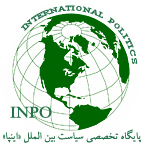زبان تخصصي : ( نظريه هاي روابط بين الملل4 ) 4 International relations theories
World Capitalist System سیستم سرمایه داری جهانی
An approach to international relations that emphasises the impact of the world wide spread of capitalism. It focuses on class and economic relations and the division of the world into a dominant centre or core of industrialised countries, a subordinate periphery of less developed countries and a semi-periphery of countries that occupy an intermediate position between core and periphery (Viotti, P. and M. Kauppi, (eds.). 1987. International Relations Theory. Macmillan Publishing Company, New York).
Social Constructivism ساختگرایی اجتماعی
Social constructivism is about human consciousness and its role in international life. As such, constructivism rests on an irreducibly intersubjective dimension of human action: the capacity and will of people to take a deliberate attitude towards the world and to lend it significance. This capacity gives rise to social facts, or facts that depend on human agreement that they exist and typically require human institutions for their existence (money, property rights, sovereignty, marriage and Valentine's Day, for example). Constructivists contend that not only are identities and interests of actors socially constructed, but also that they must share the stage with a whole host of other ideational factors emanating from people as cultural beings. No general theory of the social construction of reality is available to be borrowed from other fields and international relations constructivists have not as yet managed to formulate a fully fledged theory of their own. As a result, constructivism remains more of a philosophically and theoretically informed perspective on and approach to the empirical study of international relations. (Edited passage from Ruggie, J. 'What Makes the World Hang Together? Neo-utilitarianism and the Social Constructivist Challenge', International Organization 52, 4, Autumn 1998).
Realism
A particular view of the world, or paradigm, defined by the following assumptions: the international realm is anarchic and consists of independent political units called states; states are the primary actors and inherently possess some offensive military capability or power which makes them potentially dangerous to each other; states can never be sure about the intentions of other states; the basic motive driving states is survival or the maintenance of sovereignty; states are instrumentally rational and think strategically about how to survive.
Rationalism
A theoretical qualification to the pessimism of realism and the idealism of liberal internationalism. Rationalists view states as comprising an international society, not merely an international system. States come to be a part of an international society by accepting that various principles and institutions govern the way in which they conduct their foreign relations. In doing so, it can be argued, states also display a commitment to the idea that it is inappropriate to promote the national interest without any regard for international law and morality
 پايگاه تخصصي مطالعاتي INPO مكاني صرفاً علمي و آكادميك جهت استفاده اساتيد، دانشجويان و علاقمندان حوزه سياست بين الملل (روابط بين الملل، مطالعات منطقهاي، علوم سياسي، حقوق بین الملل و سایر گرایشهای مرتبط)، که با هدف توسعه و ترویج روزافزون گرایشات آکادمیک در حوزه سیاست بین الملل راه اندازی شده است. این پایگاه بدون شک در آینده ای نزدیک با کیفیتی بالاتر و با استفاده از نظرات اندیشمندان این حوزه حضوری چشم گیرتر در صحنه آکادمیک کشور ایفا خواهد نمود. اين پايگاه در نظام ساماندهي وب سايت های وزارت فرهنگ و ارشاد جمهوري اسلامي ايران به ثبت رسيده و در چارچوب قوانين ج.ا.ايران فعاليت خواهدداشت.
پايگاه تخصصي مطالعاتي INPO مكاني صرفاً علمي و آكادميك جهت استفاده اساتيد، دانشجويان و علاقمندان حوزه سياست بين الملل (روابط بين الملل، مطالعات منطقهاي، علوم سياسي، حقوق بین الملل و سایر گرایشهای مرتبط)، که با هدف توسعه و ترویج روزافزون گرایشات آکادمیک در حوزه سیاست بین الملل راه اندازی شده است. این پایگاه بدون شک در آینده ای نزدیک با کیفیتی بالاتر و با استفاده از نظرات اندیشمندان این حوزه حضوری چشم گیرتر در صحنه آکادمیک کشور ایفا خواهد نمود. اين پايگاه در نظام ساماندهي وب سايت های وزارت فرهنگ و ارشاد جمهوري اسلامي ايران به ثبت رسيده و در چارچوب قوانين ج.ا.ايران فعاليت خواهدداشت.